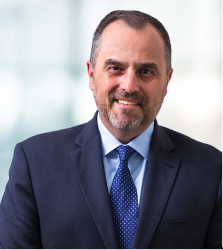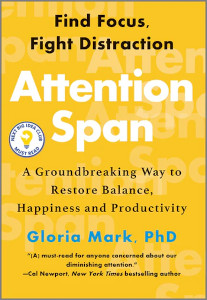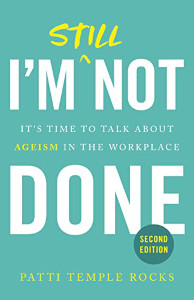Posted by Elena del Valle on July 12, 2023

The Future of Money
Photo: The Belknap Press of Harvard University Press
In The Future of Money How the Digital Revolution Is Transforming Currencies and Finance (The Belknap Press of Harvard University Press, $35) Eswar Prasad outlines the basics of money today and explores what the future might bring. Published in 2021 the 485-page hardcover book is divided into four sections and 10 chapters as well as extensive end notes. There were no replies to email requests for an interview from the publishing company or from Prasad’s email address.
In the book he expresses the belief that Central Bank Digital Currencies (CBDCs) are likely to be a part of our future; and that the use of digital payments in lieu of cash will displace privacy in commercial transactions. He says that despite the loss of privacy they bring financial technologies have the potential to improve the economic conditions for many, especially the poor and economically marginalized.
He describes two main types of CBDCs, wholesale and retail. Wholesale refers to transactions between the central bank and banks and financial payment companies. Retail refers to individuals and businesses. Within retail there are three categories, according to the author: e-money such as the digital money payment services like PayPal and Venmo offer as well as that offered by pioneering central banks like the Riksbank in Sweden; a second option, more technologically sophisticated, is an account based CBDC through which individuals and businesses would have accounts directly at the central banks; and an officially sanctioned cryptocurrency, a form of digital currency designed to operate on “permissioned blockchains.”
Cryptocurrencies instead of bypassing governments and affording users some anonymity may have the opposite effect at the expense of individual liberties, he speculates. In the final chapter he explains that such changes won’t solve all problems; corruption, lax government, the advantages of the elites and inequality will continue to plague society.
According to his book jacket bio at the time the book was published Prasad was the Tolani senior professor of Trade Policy and professor of economics at Cornell University; he was a senior fellow at the Brookings Institution, where he held the New Century Chair in International Economics; and a research associate at the National Bureau of Economic Research. His other titles include Gaining Currency: The Rise of Renminbi and The Dollar Trap: How the U.S. Dollar Tightened its Grip on Global Finance.
Comments:
Filed Under: Books
Posted by Elena del Valle on June 19, 2023

Michael Agostino, R.ph., CEO, N.A.S.H.
Photo: Network of Advanced Specialty Healthcare
A podcast interview with Michael R. Agostino, R.ph., CEO, N.A.S.H., is available in the Podcast Section of Hispanic Marketing and Public Relations, HispanicMPR.com. During the podcast, he discusses medical tourism in Mexico for orthopedic patients with Elena del Valle, host of the HispanicMPR.com podcast.
Mike is a registered pharmacist and an entrepreneur with 30 years of experience in the healthcare industry. He has been a founder, co-founder, and key contributor to the formation of several companies, according to his biography. He served as board chair and an executive board member for the Lower Plains Region of the Leukemia and Lymphoma Society, and board chair of the National Association of Specialty Pharmacy.
To listen to the interview, scroll down and click on the play button below. It is also possible to listen by looking for “Podcast” then select “HMPR Michael Agostino, Rph” and download the MP3 file to your audio player. You can also find it on the RSS feed. To download it, click on the arrow of the recording you wish to copy and save it to disk. The podcast will remain listed in the June 2023 section of the podcast archive.
Posted by Elena del Valle on June 7, 2023

Attention Span
Photo: Hanover Press
Gloria Mark, Ph.D., professor, Informatics at the University of California, Irvine, believes she has found a new concept that identifies how our brains work in the digital world. She calls it kinetic attention and describes why she thinks it may help readers of Attention Span: A Groundbreaking Way to Restore Balance, Happiness and Productivity (Hanover Press, $28.99), her new book, to gain control of their productivity.
The 360-page hardcover book, published earlier this year, is divided into 14 chapters and three main parts: The Anatomy of Attention, The Underlying Forces of Distraction and Focus, Rhythm and Balance. In the book she explains that although we are in the Wild West era of the digital age we should be able to modify and manage the digital world despite the many pressing challenges it poses in our daily lives. Each of us has the power to determine where to focus our attention regardless of the many forces seeking to draw our attention toward them, according to the author.
Mark has been a visiting senior researcher at Microsoft Research since 2012, according to the biography in her book. She did not reply to requests for an interview or to answer questions submitted via email to a representative from her publishing company.
Comments:
Filed Under: Books
Posted by Elena del Valle on May 24, 2023

Joey Santore and Al Scorch, hosts, Kill Your Lawn
Photo: Empty Quarter Studios
Kill Your Lawn, a new half-hour reality-TV series that began airing last month, seeks to inspire viewers to rid themselves of their home lawns. Based on two screeners provided by an Empty Quarters representative via email, the guys next door style program showcases examples of yard transformations and lawn-less projects. In Episode Two the program’s two hosts and a dog travel to Miami, Florida where they share their opinions on lawns, interview a homeowner keen to replace his lawn with native plants as well as a nursery owner and others. With the owner’s approval the hosts kill the lawn using a pressure washer. In a similar episode they redo the yard of a Fort Lauderdale, Florida couple. They remove the lawn using a portable fire device.
According to a press release Kill Your Lawn “is a rejection of the lawn industrial complex, celebrating the courage and inspiring messages of first-time lawn killers.” It consists of eight half hour makeover episodes. The goal is to replace homeowner lawns with pollinator-friendly, native plant gardens, according to promotional materials.
Joey Santore and Al Scorch are the hosts. Santore is described in promotional materials as “a blue-collar schmuck from Chicago who left a career at the railroad to pursue a lifetime studying botany and educating others via his cult-hit YouTube channel Crime Pays But Botany Doesn’t.” Schorch is said to be his best friend from Chicago, “a bicycle mechanic and punk rock banjoist.”
According to a spokesperson EarthxTV, is available on Charter’s Spectrum TV, FuboTV, the National Cable Television Cooperative (NCTC) in the United States, Sky, and Freeview in the United Kingdom, M7 in Europe, Claro video and TotalPlay in Mexico. EarthxTV may be available on Directv for satellite and internet customers and Directv Streat.
Empty Quarter Studios (EQS) specializes in “unique, uplifting, and edgy entertainment, telling stories of human experience shaped by adventure, natural history, culture, and ingenuity.”
Posted by Elena del Valle on May 1, 2023
 Photo: Citronella Stories
Photo: Citronella Stories
Citronella Stories will release Bug Therapy, a seven minute animated short film about mental health, via YouTube.com on May 1, 2023. According to a press release the short film will have a limited release in North America online and at select theaters, at no cost, for the month of May, to celebrate Mental Health Awareness Month. The film strives to highlight the importance of therapy and mental health. It should be available today at https://www.youtube.com/watch?v=U6n7aMfxKec
It features the voices of Phil McGraw, Meghan Trainor, Jay Leno, Sterlin K. Brown, Tom Green, Emily Goglia and Jason Reisig. It is due to have a wide release in June, with plans for a global release this fall, according to a press release received by email.
Bug Therapy was directed by Jason Reisig. It was written and created by Michael Jann and Michele Jourdan, of Citronella Stories, and animated by 88 Pictures. Randy Mills was producer. Eric Bergman was co-producer. Jann and Jourdan were executive producers, along with Jason Reisig, Randy Mills, and 88 Pictures’ Milind D. Shinde.
In Citronella (Trainor), a mosquito who faints at the sight of blood, tries to muster the courage to attend group therapy to overcome her phobia. She learns that “everyone faces mental health struggles.” Stick Bug (Brown) battles depression over never feeling seen, Fly (Leno) is “OCD and germaphobic and can’t stop washing his hands,” Grasshopper (Green) suffers from addiction to coffee, Praying Mantis (Goglia) is narcissistic and delusional and believes she’s God. A Dragonfly couple (Jann and Jourdan) are co-dependent, and Spider (Reisig) tries to overcome his phobia of spiders. Dr. Pill (McGraw) leads the therapy.
Posted by Elena del Valle on April 17, 2023

Miriam Schulman, author, Artpreneur
Photo: Miriam Schulman
A podcast interview with Miriam Schulman, author, Artpreneur The Step-by-Step Guide to Making a Sustainable Living from Your Creativity, is available in the Podcast Section of Hispanic Marketing and Public Relations, HispanicMPR.com. During the podcast, she discusses Marketing Lessons from Artpreneur with Elena del Valle, host of the HispanicMPR.com podcast.
Miriam is a New York artist, and founder of The Inspiration Place and The Artists Incubator Coaching Program. She seeks to help artists (from emerging to professional) develop their skills, tap into their creativity, and grow thriving art businesses. The author left a lucrative Wall Street career in the wake of 9/11 to pursue art full-time. Her art and story have been featured in Forbes, What Women Create, The New York Times, Art of Man, Art Journaling magazine as well as on NBC’s Parenthood and the Amazon series Hunters with Al Pacino. According to promotional materials her podcast, The Inspiration Place, graces the top one percent of podcasts globally and is listened to in over 100 countries.
To listen to the interview, scroll down and click on the play button below. Or by look for “Podcast” then select “HMPR Miriam Schulman” and download the MP3 file to your audio player. You can also find it on the RSS feed. To download it, click on the arrow of the recording you wish to copy and save it to disk. The podcast will be listed in the April 2023 section of the podcast archive.
Posted by Elena del Valle on April 3, 2023

Timothy Baker, CFA, founder, Metric Financial
Photo: Metric Financial
A podcast interview with Timothy Baker, C.F.A., founder, Metric Financial, is available in the Podcast Section of Hispanic Marketing and Public Relations, HispanicMPR.com. During the podcast, he discusses banking and trends in the financial industry with Elena del Valle, host of the HispanicMPR.com podcast.
Tim is a chartered financial analyst and chief executive officer of Metric Financial. According to his bio he is a Registered Investment Advisor “dedicated to helping clients lower costs and improve results through factor investing.” Prior to starting Metric, he held product development and strategy roles at among others, BlackRock/iShares, where he was product strategist in the firm’s Smart Beta Exchange Traded Fund group.
To listen to the interview, scroll down and click on the play button below. It is also possible to listen by looking for “Podcast” then select “HMPR Tim Baker, CFA ” and download the MP3 file to your audio player. You can also find it on the RSS feed. To download it, click on the arrow of the recording you wish to copy and save it to disk. The podcast will remain listed in the April 2023 section of the podcast archive.
Posted by Elena del Valle on March 22, 2023

I’m Still Not Done
Photos: Patti Temple Rocks
Patti Temple Rocks, a communicator with four decades of experience, according to her biography, is troubled by corporate ageism. In the second edition of “I’m Still Not Done: It’s Time to Talk About Ageism In The Workplace (Lioncrest Publishing), a 237-page paperback nonfiction title published last year, she discusses her experiences with ageism and her views on combating it.

Patti Temple Rocks, author, I’m Still Not Done
“Ageism is the only form of workplace discrimination that all of us are susceptible to,” Temple Rocks said in a book related press release. “The sad truth is that organizations who don’t value their older workers are missing out on the unique wisdom and dedication that these employees bring to the table.”
As of this writing the author is unavailable for an interview according to a publicist who responded by email. She didn’t respond to questions submitted to her publicist.
The book is divided into nine chapters. According to promotional materials Temple Rocks has held senior leadership positions in three sectors of the communications industry: public relations, advertising, and client side; she served as chief communications officer for The Dow Chemical Company, and chief reputation officer for Leo Burnett Worldwide. She is a self-described public speaker and consultant.
Comments:
Filed Under: Books
Posted by Elena del Valle on March 6, 2023



Bárbara C. Cruz, Jeff Houck and Andrew Huse, authors, The Cuban Sandwich
Photos: University Press of Florida, Andrew Huse photo by Rion Sabean
A podcast interview with Bárbara C. Cruz, Jeff Houck and Andrew Huse, authors of The Cuban Sandwich: A History in Layers (University Press of Florida, $24,95) (see Three unite to explore Cuban sandwich history in new title), is available in the Podcast Section of Hispanic Marketing and Public Relations, HispanicMPR.com. During the podcast, they discuss the Cuban sandwich and their book with Elena del Valle, host of the HispanicMPR.com podcast.
Cruz is professor of Social Science Education at the University of South Florida (U.S.F.). She has been a faculty member since 1991, teaching undergraduate and graduate courses, conducting research on global and multicultural issues.
Houck is vice president of marketing for the 1905 Family of Restaurants in Tampa. He spent 25 years in newspaper and multimedia journalism, most recently as a features editor, food writer and podcaster at the Tampa Tribune. He has written for Thrillist, FoxSports.com, The Palm Beach Post, The Miami Herald and The Anchorage Times.
Huse is curator of Florida Studies at the University of South Florida Libraries. His other books include The Columbia Restaurant (2009) and From Saloons to Steak Houses: A History of Tampa (2020).
To listen to the interview, scroll down and click on the play button below. It is also possible to listen by looking for “Podcast” then select “HMPR Barbara Jeff Andrew” and download the MP3 file to your audio player. You can also find it on the RSS feed. To download it, click on the arrow of the recording you wish to copy and save it to disk. The podcast will remain listed in the March 2023 section of the podcast archive.
Posted by Elena del Valle on February 22, 2023

The Cuban Sandwich
Photos: University of Florida Press, Andrew Huse photo by Rion Sabean
Bárbara C. Cruz, Jeff Houck and Andrew Huse, three Florida Cuban sandwich aficionados, teamed up to research and write a book about the popular hand food. In The Cuban Sandwich (University Press of Florida, $24.95), a 167-page paperback book published last year, they explore the origins and evolution of the famed sandwich popular among many Floridians.
When asked how many months or years the book project required Andrew Huse replied by email: “I started with more than a year of sustained research, followed by the collaboration with my co-authors, which lasted another year, including peer review.”
“I published previous work woith Univbersity Press of Florida before and I like to work with them,” Huse said when asked about finding a publisher. “Before that, I offered it to another academic press, but they didn’t seem to know what to do with it.”
Their primary target audience? Huse said, “Sandwich and history fans!”
“I measure our success by the end product, which I am happy with,” said Huse when asked how he will measure success.”All sales and attention are a bonus!” Houck’s reply to the same questions is “Adding a page to the history of this great sandwich and the people who created it and find new ways to make and celebrate its greatness is its own reward.”
When asked whether they received compensation of any kind from third parties to be included in the book Houck’s said, “No. As I said, I am Vice President of Marketing for the Columbia Restaurant and the 1905 Family of Restaurants, but at no time was I compensated by them for inclusion in this book.”
Cruz is professor of Social Science Education at the University of South Florida (U.S.F.). Houck is vice president of marketing for the 1905 Family of Restaurants in Tampa. Huse is curator of Florida Studies at the University of South Florida Libraries.
Comments:
Filed Under: Books




 Photo: Citronella Stories
Photo: Citronella Stories
















